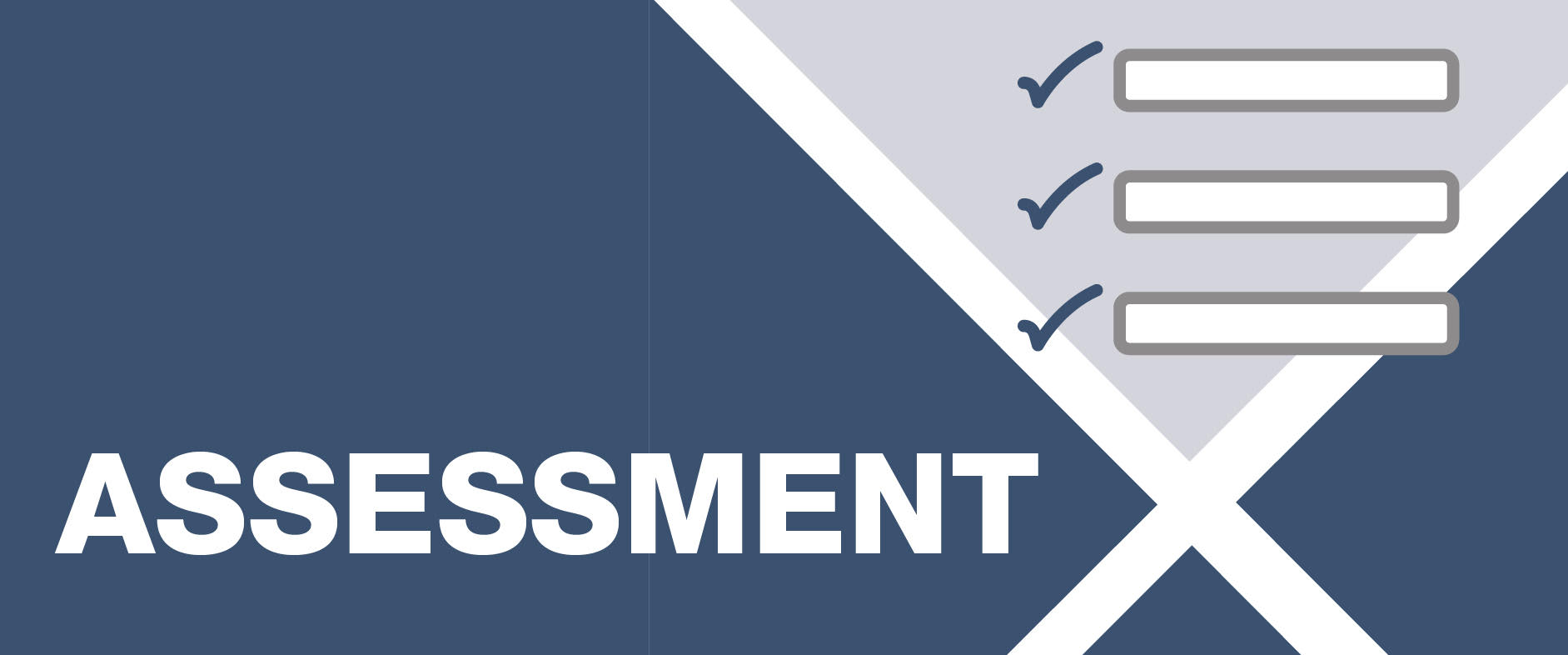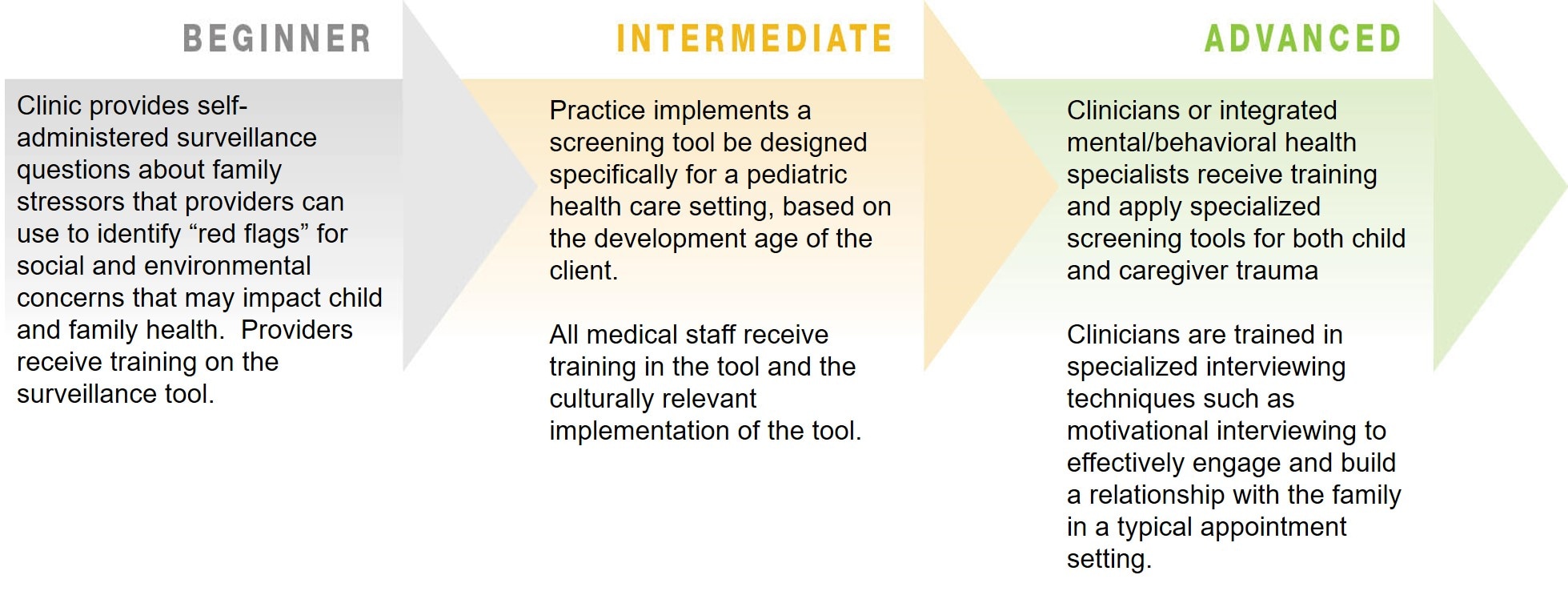As the science of adverse childhood experiences and the potentially devastating impact of toxic stress on lifelong health informs medical practice and public health efforts, practices require evidence-informed screening and assessment tools and instruction on how to apply information to effective interventions for patients and families. This guide places an emphasis on having resource and referrals structures in place PRIOR to introducing a new screening. Screening without a network of services can make the pediatric or family care provider feel overwhelmed and could create further stress for the patients.
Screening tools should be designed specifically for a pediatric health care setting, rather than adapted from another sector. Screening tools should also be developmentally age-appropriate and culturally competent/apply cultural humility. Experts in ACEs research recommend screening tools focus on or encompass parent or caregiver screening as well. A final component for screening and assessment is the necessary training required to properly administer the tool. Leaders in the pediatric and family care sector who are advanced in assessment and screening will have included extensive training in how to appropriately utilize the identified tool. (References: Center for Youth Wellness, Chronicle for Social Change, University of Maryland)
Screening tools should be designed specifically for a pediatric health care setting, rather than adapted from another sector. Screening tools should also be developmentally age-appropriate and culturally competent/apply cultural humility. Experts in ACEs research recommend screening tools focus on or encompass parent or caregiver screening as well. A final component for screening and assessment is the necessary training required to properly administer the tool. Leaders in the pediatric and family care sector who are advanced in assessment and screening will have included extensive training in how to appropriately utilize the identified tool. (References: Center for Youth Wellness, Chronicle for Social Change, University of Maryland)
Practice Highlights
- Center for Youth Wellness has developed a routine assessment for childhood trauma, ACE-Q. A trained medical assistant presents the ACE-Q as part of a packet of routine assessments and describes its purpose, explaining that the information is gathered from all patients to help keep them healthy. The caregiver or teenager completes the ACE-Q in the waiting room, indicating whether they had been exposed to a list of 17 (or, for teens, 19) adverse experiences. Following the assessment and visit with pediatrician, wellness coordinators arrange mental health and wellness interventions, guided by a multidisciplinary, two-generation approach.
- AAP: Resilience and Clinical Assessment Tools
- Parental Screening Questionnaire: A Safe Environment for Every Kid
- Bright Futures Pediatric Intake Form, also known as the Family Psychosocial Screen


